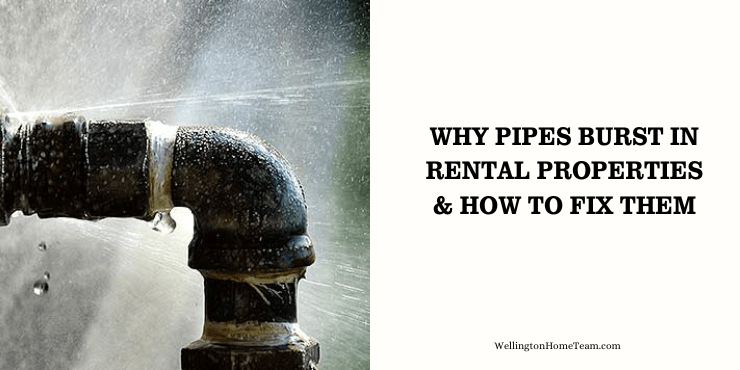Understanding Why Pipes Burst in Rental Properties and How to Effectively Resolve the Issue
Experiencing a burst pipe is a situation no rental property owner wants to face. It can quickly escalate from a minor inconvenience to a major financial setback, bringing with it the challenge of unexpected repair expenses, tenant complaints, and the stress of emergency management. When pipes fail, they do so abruptly, leaving property owners scrambling to mitigate the damage.
What Causes Pipes to Burst?
1. Aging and Clogged Pipes
Old and clogged pipes can resemble ticking time bombs in rental properties. Over time, pipes deteriorate and accumulate debris, significantly narrowing the flow of water. Increased pressure from obstructions—like grease and hair—can lead to sudden cracks or ruptures. Moreover, corrosion can silently compromise the structural integrity of older pipes.
- Key takeaway: Regular inspections and proactive maintenance can help identify aging pipes. Consider replacing old plumbing to avoid catastrophic failures.
2. Inadequate Repairs
Often, burst pipes can be traced back to poor or rushed repairs. When previous repairs are improperly executed—like an unsealed joint or an incorrectly fitted pipe—these weak spots can eventually lead to a burst.
- Recommendation: Engage licensed professionals for plumbing repairs to ensure quality craftsmanship. Regular inspections can help uncover these lingering issues.
3. Drought Conditions
Contrary to popular belief, a lack of rain can also cause pipes to burst. Dry soil around underground pipes can shift and create unforeseen pressure that leads to breaks or cracks.
- Maintenance Tip: Monitor soil conditions during dry spells. This simple observation can prevent significant plumbing issues down the line.
How to Repair Burst Pipes
1. Conduct a Thorough Inspection
Before attempting any repairs, inspect the affected areas diligently.
- First steps:
- Shut off the water supply immediately to prevent further flooding.
- Examine for wet spots or puddles and assess the entire plumbing system to identify potential weak areas.
Using a flashlight can help detect leaks that aren’t immediately obvious.
2. Choose Between Repair and Replacement
In the aftermath of a burst pipe, the instinct may be to implement a quick fix to stop the immediate water damage. However, it’s crucial to evaluate if replacing the affected pipe is a more strategic choice.
- Options available:
- Temporary fixes: Clamping or pipe epoxies might suffice for short-term needs.
- Permanent solutions: A complete pipe replacement could save long-term costs and prevent future issues.
Consider consulting a reliable plumber to assess the overall plumbing situation rather than just the immediate problem.
Importance of Professional Water Damage Restoration Services
Ignoring lingering water damage can have serious repercussions, including mold growth and structural compromise. While it might be tempting to handle cleanup independently, enlisting the help of professional restoration services can prove to be invaluable.
- Benefits of hiring professionals:
- Advanced tools can detect hidden moisture.
- Expertise ensures thorough cleanup, minimizing future risks.
- Professional documentation assists in filing insurance claims efficiently.
Investing in qualified services for restoring water damage safeguards both the property and tenant health.
Conclusion
While bursting pipes can feel overwhelming, understanding the potential causes and knowing how to respond can mitigate risks associated with water damage. A proactive approach not only protects your rental investment but also fosters a positive tenant experience.
For comprehensive insights into preventing pipe-related issues, consider exploring more on common plumbing problems and maintenance tips for rental properties.


